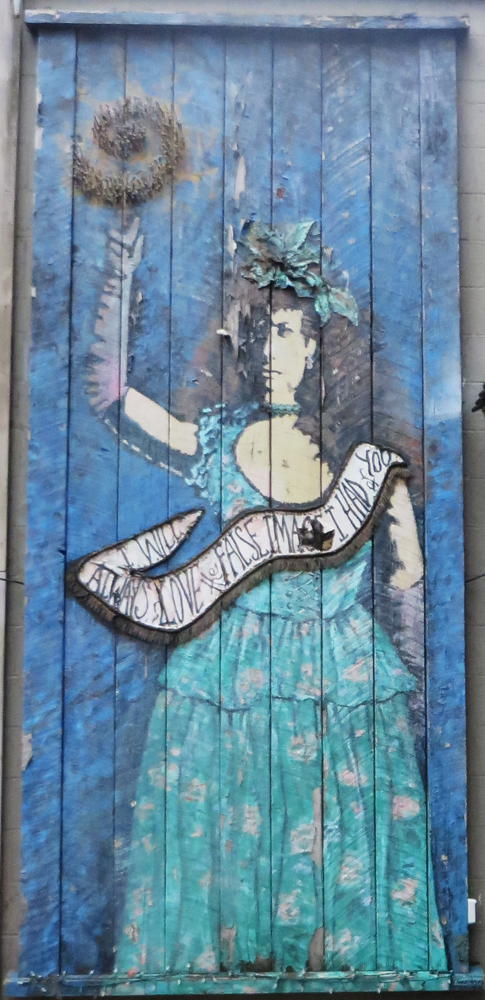Day 5 of The Ex-Boyfriend Cookbook Meditation challenge finds us with “John’s Spinach-Orange Salad.” The authoress meets John, an art history grad student, at a laundromat, where she astutely surmises that he is, in fact, a grad student because he’s doing laundry—with a stack of papers to grade and a six pack of beer—on a Saturday night. (Once you’re actually done with graduate school, you are just home on a Saturday night, listening to “The Swing Years and Beyond” or watching your 90th hour of Game of Thrones. With a bottle of wine.) He does something truly amazing—he asks her over for dinner the NEXT NIGHT, which leads her to believe he is going to be awesome. And I will say this for graduate school: because you have so much to do, so incredibly, terribly, so much to do, you never ONCE say, to a person in whom you have any romantic interest, “I’ll call you later.” You will jump at the chance to stop working on your dissertation, particularly if it means real human contact. (Again, once out of grad school, your connection to the real world seems to contract and you will, instead, watch two days of Game of Thrones—sense a pattern?—before remembering you met a cute girl on the bus. Oh yes–by “you”? I mean “dudes.”)
Anyway, she goes to John’s house and is somewhat startled that this seemingly classy art history graduate student has plastered his walls with pictures of scantily-clad women—not “vintage” pin-ups but, like, Victoria’s Secret “angels.” (Oh, Coventry Patmore—is this what you had in mind with “The Angel in the House”?) Worse, each image has a thought bubble, attesting to John’s sexual prowess, making requests more suitable to a bad OK Cupid creeper than a seemingly suave art history student. But, as with Rhett of “Rhett’s Quesadilla Things,” the narrator stays for dinner, and John takes her picture . . . before they have a “nasty fight about the validity of Naomi Wolf’s The Beauty Myth, and [she throws] a glass of wine in his face.”
The best part is that, four pages later, she gives us a recipe for “Josh’s Spinach-Strawberry Salad.” Josh was—you guessed it—John’s twin brother.
The lesson for today: I called in my neighbors, Natalie and Andy, on this one. Natalie, who self-reports as unsentimental and “not the type to nickname,” asserts that the moral is “Some people take themselves too seriously”—by which she means the authoress. “He was being ironic,” says Nat (who is nicknamed, and often, herself). “He’s basically doing the equivalent of ‘That’s what she said.’ He was ahead of the curve.” Andy agreed. When I hedged, they asked me if I would have thrown my glass of wine in his face, and I said, “When I was in early grad school? Yes.” I once had a “nasty fight” with an ex-boyfriend, Colin (I’ll provide a link when I post my music essay about him later), when I realized in his 300+ CD collection, he had one—ONE—CD by a woman. Misogyny!! Worse than misogyny because unintentional!! Blind to his own tendency to oppress!! Patriarchal secret agent!
I probably wouldn’t throw my glass of wine in anyone’s face now, but that’s probably because I wouldn’t stay for dinner. The last time I even came close was when I found out the guy I was seeing was a Republican. (I was having a dry spell, and I was so unhappy I didn’t even let myself suspect it, preferring, instead, to just keep making out and letting him make me dinner. It was a dark time.)
I think there might be two lessons here: one specific, one general. The specific lesson might be that some “clever” men of a certain age don’t decorate for themselves—they decorate for other men. Or men don’t think anyone will ever come over to their apartments. Or they don’t think the women they invite over can read. Or see.
The general lesson might be that everyone in whom you are interested will manifest at least one deeply revealing, if seeming contradiction. With John, it was that a dedication to art history doesn’t make one classy.
This week, I went out for drinks with a 24 year-old friend; we made friends with the handsome bartender, who was 34 and seemed really thoughtful and complex. He gave Katie his number. I felt somewhat hurt and, then, incredibly, sheepishly aware of my egotism. I was hurt because I thought someone that thoughtful was clearly capable of being attracted to a 40 year-old woman—namely, me. I went first for the satisfying interpretation (actually articulated for me by another male friend, lest this post read as unjust in its male representation): men would rather try for the woman 10 years younger than the woman closer to their age because it is easier. BUT—thank you, Natalie and Andy—maybe I am missing the more obvious, less complicated point here. Katie is totally beautiful and smart and fun, and I date younger men all the time. Maybe he just thought she was prettier, and I am a big hypocrite, despite my fancy-free approach to what-is-appropriate-in-dating.
As you drive down Olive Way, in Capitol Hill, you will pass a mural on the side of one building. It’s a mural I’ve loved since Colin-who-listened-to-no-women’s-music and I lived two blocks away. A woman stands with one arm raised, holding up a wreath of real, rusty nails; across her chest is a Miss America-style banner that reads, “I will always love the false image I had of you.” Was the bartender less complex than I thought he was? Or am I?

